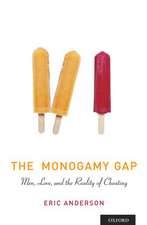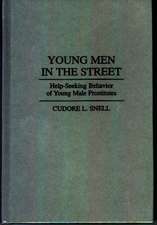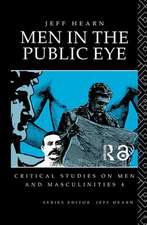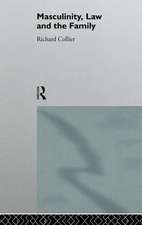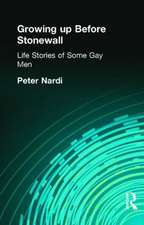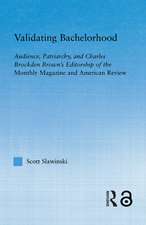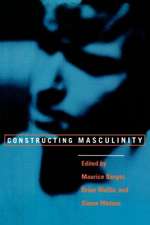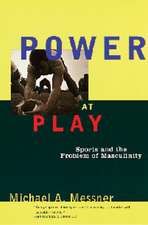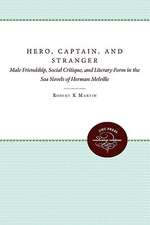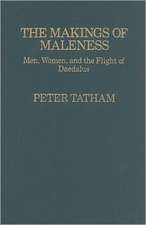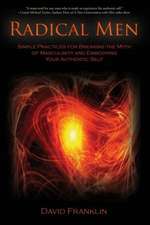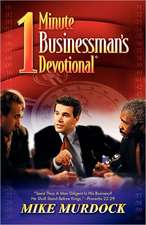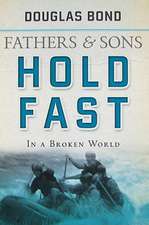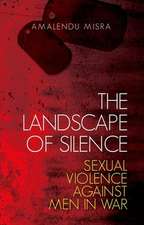Thirteen Ways of Looking at a Man: Psychoanalysis and Masculinity
Autor Donald Mossen Limba Engleză Hardback – 21 mai 2012
Part 1 looks at the lifelong labor faced by boys and men of assessing themselves in relation to an always shifting, always receding, ideal of "masculinity." In Part 2, Moss considers a series of nested issues regarding homosexuality, homophobia and psychoanalysis. Part 3 focuses on the interface between the body experienced as a private entity and the body experienced as a public entity—the body experienced as one’s own and the body subject to the judgments, regulations and punishments of the external world. The final part looks at men and violence. Men must contend with the entwined problems of regulating aggression and figuring out its proper level, aiming to avoid both excess and insufficiency. This section focuses on excessive aggression and its damaging consequences, both to its object and to its subjects.
Thirteen Ways Of Looking At A Man will be of great interest not only to psychoanalysts and psychotherapists, but also to a much wider audience of readers interested in gender studies, queer studies, and masculinity.
| Toate formatele și edițiile | Preț | Express |
|---|---|---|
| Paperback (1) | 384.16 lei 6-8 săpt. | |
| Taylor & Francis – 21 mai 2012 | 384.16 lei 6-8 săpt. | |
| Hardback (1) | 780.87 lei 6-8 săpt. | |
| Taylor & Francis – 21 mai 2012 | 780.87 lei 6-8 săpt. |
Preț: 780.87 lei
Preț vechi: 952.29 lei
-18% Nou
Puncte Express: 1171
Preț estimativ în valută:
149.44€ • 162.27$ • 125.53£
149.44€ • 162.27$ • 125.53£
Carte tipărită la comandă
Livrare economică 22 aprilie-06 mai
Preluare comenzi: 021 569.72.76
Specificații
ISBN-13: 9780415604918
ISBN-10: 0415604915
Pagini: 176
Dimensiuni: 156 x 234 mm
Greutate: 0.42 kg
Ediția:New.
Editura: Taylor & Francis
Colecția Routledge
Locul publicării:Oxford, United Kingdom
ISBN-10: 0415604915
Pagini: 176
Dimensiuni: 156 x 234 mm
Greutate: 0.42 kg
Ediția:New.
Editura: Taylor & Francis
Colecția Routledge
Locul publicării:Oxford, United Kingdom
Public țintă
Professional Practice & DevelopmentCuprins
Bass, Foreword. Prologue. Masculinity as Masquerade. Immaculate Attachment vs. Passive Yearning: On Being and Becoming a Man. First Aside: Ted. On Neither Being Nor Becoming a Man. Two Ways of Looking Back. Psychoanalysis and Male Homosexuality/ The Ideal of Neutrality. Internalized Homophobia: Wanting in the First-Person Singular, Hating in the First-Person Plural. On Situating Homophobia. Freud’s "Female Homosexual": One Way of Looking at a Woman. Second Aside: Little Richard. Looking at a Transsexual. War Stories. Epilogue.
Notă biografică
Donald Moss is on the faculty of the Institute for Psychoanalytic Education of NYU Medical Center. Moss focuses on the elemental problem sites of masculinity—mind/body, inside/outside, heterosexual/homosexual, love/hate, singular/plural—while arguing against any settled notion of what men—and women—want.
Recenzii
Donald Moss’s Thirteen Ways of Looking at a Man is undoubtedly one of the most important books of the past decade on the complexities of the development of male gender identity. The book, as reflected in its title, offers no "solutions" to the questions it raises; rather, it examines the problem of gender identity from a number of vantage points, each of which complements, but also complicates, the others. What for me is a particular pleasure in reading this book is the writing itself—writing that is often used to describe some of the author’s own experiences as a boy faced with the daunting task faced by all boys in their efforts to grow up to be a man in one’s own terms. - Thomas Ogden, Personal and Supervising Analyst, Psychoanalytic Institute of Northern California
Donald Moss has written a brilliant, emotionally unsettling and brave book. The ostensive topic of Moss’ book is a close look at masculinity, but actually this book is an examination of "masculinities" that turn the standard normative forms of gender inside out. In Moss’ project, the canonical has become symptomatic. Through the psychoanalytic lens he deploys so deeply, Moss illuminates how much all our struggles with desire and loss inevitably overwhelm us in the project of forming and becoming selves, with dangerous and destructive consequences. We are all inevitably displacing and expelling those aspects of body and mind that frighten and shame us into the bodies and lives and minds of weaker and more vulnerable people. This is Moss’ original and potent way of thinking through misogyny, homophobia, and the often murderous attitudes toward difference and otherness, including "trans" experience. Moss asks us to see that these refusals and disavowals of our complex humanity have enormous and dangerous consequences individually, collectively, and politically - Adrienne Harris, PhD, New York University
Fascinating, thought-provoking exploration of the notion of masculinity, written in an intelligent, accessible style - Michael Feldman, Supervising and Training Analyst, British Psychoanalytical Society
"The title of this important book echoes both Wallace Stevens' poem Thirteen Ways of Looking at a Blackbird and Henry Louis Gates Jr's Thirteen Ways of Looking at a Black Man. Like Stevens and Gates, Donald Moss offers multiple perspectives: being a man is not simply a choice to be more or less like Arnold Schwarzenegger or Liberace. Each man has internalised an ideal based on disavowals and refusals of other male bodies and behaviours. The author combines his childhood reminiscences of illness and classroom embarrassment, deep personal reflection, his father's war stories, theoretical overviews and case studies from his psychoanalytic practice. This way of writing is common to a range of books on masculinity, but the stylistic mix reflects the volatility he seeks to address." – David Kennedy, Times Higher Education
"This scholarly yet incisive and accessible book addresses the unstable notion of masculinity and the ways in which both hetero- and homosexual man seek to shape themselves in relation to the precarious nature of being a man. ... The writing is enriched by the author's willingness to share several of his own formative experiences in facing the daunting task of searching for the ways to grow up as a man with a mind of his own." - Michael J. Diamond, Los Angeles Institute and Society for Psychoanalytic Studies
"It is not only Moss’s scholarship and the depth of his theoretical and clinical insights that make the book bold; it is also that, in looking at a man in different ways, Moss at times works like a memoirist who
uses his own experience to deepen consideration of masculinity." Sidney H. Phillips for The Psychoanalytic Quarterly, 2014
"This unusual, vital, and in places demanding book is about the contemporary shifting scene of psychoanalytic assessment of "masculinity."...Moss has offered many more than "13 ways" of looking, of profoundly and richly perceiving his own topic, men. The book will be of great interest to psychoanalysts, scholars of gender, and cultural critics.Summing Up: Highly recommended."- R. H. Balsam, Yale University, for CHOICE, January 2013
Donald Moss’s Thirteen Ways of Looking at a Man is undoubtedly one of the most important books of the past decade on the complexities of the development of male gender identity. The book, as reflected in its title, offers no "solutions" to the questions it raises; rather, it examines the problem of gender identity from a number of vantage points, each of which complements, but also complicates, the others. What for me is a particular pleasure in reading this book is the writing itself—writing that is often used to describe some of the author’s own experiences as a boy faced with the daunting task faced by all boys in their efforts to grow up to be a man in one’s own terms. - Thomas Ogden, Personal and Supervising Analyst, Psychoanalytic Institute of Northern California
Donald Moss has written a brilliant, emotionally unsettling and brave book. The ostensive topic of Moss’ book is a close look at masculinity, but actually this book is an examination of "masculinities" that turn the standard normative forms of gender inside out. In Moss’ project, the canonical has become symptomatic. Through the psychoanalytic lens he deploys so deeply, Moss illuminates how much all our struggles with desire and loss inevitably overwhelm us in the project of forming and becoming selves, with dangerous and destructive consequences. We are all inevitably displacing and expelling those aspects of body and mind that frighten and shame us into the bodies and lives and minds of weaker and more vulnerable people. This is Moss’ original and potent way of thinking through misogyny, homophobia, and the often murderous attitudes toward difference and otherness, including "trans" experience. Moss asks us to see that these refusals and disavowals of our complex humanity have enormous and dangerous consequences individually, collectively, and politically - Adrienne Harris, PhD, New York University
Fascinating, thought-provoking exploration of the notion of masculinity, written in an intelligent, accessible style - Michael Feldman, Supervising and Training Analyst, British Psychoanalytical Society
"The title of this important book echoes both Wallace Stevens' poem Thirteen Ways of Looking at a Blackbird and Henry Louis Gates Jr's Thirteen Ways of Looking at a Black Man. Like Stevens and Gates, Donald Moss offers multiple perspectives: being a man is not simply a choice to be more or less like Arnold Schwarzenegger or Liberace. Each man has internalised an ideal based on disavowals and refusals of other male bodies and behaviours. The author combines his childhood reminiscences of illness and classroom embarrassment, deep personal reflection, his father's war stories, theoretical overviews and case studies from his psychoanalytic practice. This way of writing is common to a range of books on masculinity, but the stylistic mix reflects the volatility he seeks to address." – David Kennedy, Times Higher Education
"This unusual, vital, and in places demanding book is about the contemporary shifting scene of psychoanalytic assessment of "masculinity." Moss is an innovative and politically aware psychoanalyst who has contributed many interesting papers on hetero- and homosexuality, homophobia, gender, violence, and racism to psychoanalytic journals over the years. The present work is both postmodern and highly personal, and is written in a lyrical, poetic style. Parts of the text read like mini-essays in The New Yorker. Moss confronts and undermines the cultural biases involved in thinking about what makes a "man," in his in-depth self-reflections and in the reflections of his patients. Moss has offered many more than "13 ways" of looking, of profoundly and richly perceiving his own topic, men. The book will be of great interest to psychoanalysts, scholars of gender, and cultural critics. Summing Up: Highly recommended." - Rosemary H. Balsam, CHOICE
"With his latest publication,…Donald Moss, a refreshing psychoanalytic scholar and ambassador, continues the theoretical and clinical conversation on masculinities in a daring, personal, rigorous manner. At times autobiographical, poetic, historical, scholastic, moving and crystalline, these are less traditional chapters. They are more embodied essays, stories told with an invitation to consider Moss' associations, his very human poignant curves and sideswipes…They hang together brilliantly as a book, yet stand alone as contemporary meditations." - Fort/Da, The Journal of the Northern California Society for Psychoanalytic Psychology
"This scholarly yet incisive and accessible book addresses the unstable notion of masculinity and the ways in which both hetero- and homosexual man seek to shape themselves in relation to the precarious nature of being a man. ... The writing is enriched by the author's willingness to share several of his own formative experiences in facing the daunting task of searching for the ways to grow up as a man with a mind of his own." - Michael J. Diamond, Los Angeles Institute and Society for Psychoanalytic Studies
Donald Moss has written a brilliant, emotionally unsettling and brave book. The ostensive topic of Moss’ book is a close look at masculinity, but actually this book is an examination of "masculinities" that turn the standard normative forms of gender inside out. In Moss’ project, the canonical has become symptomatic. Through the psychoanalytic lens he deploys so deeply, Moss illuminates how much all our struggles with desire and loss inevitably overwhelm us in the project of forming and becoming selves, with dangerous and destructive consequences. We are all inevitably displacing and expelling those aspects of body and mind that frighten and shame us into the bodies and lives and minds of weaker and more vulnerable people. This is Moss’ original and potent way of thinking through misogyny, homophobia, and the often murderous attitudes toward difference and otherness, including "trans" experience. Moss asks us to see that these refusals and disavowals of our complex humanity have enormous and dangerous consequences individually, collectively, and politically - Adrienne Harris, PhD, New York University
Fascinating, thought-provoking exploration of the notion of masculinity, written in an intelligent, accessible style - Michael Feldman, Supervising and Training Analyst, British Psychoanalytical Society
"The title of this important book echoes both Wallace Stevens' poem Thirteen Ways of Looking at a Blackbird and Henry Louis Gates Jr's Thirteen Ways of Looking at a Black Man. Like Stevens and Gates, Donald Moss offers multiple perspectives: being a man is not simply a choice to be more or less like Arnold Schwarzenegger or Liberace. Each man has internalised an ideal based on disavowals and refusals of other male bodies and behaviours. The author combines his childhood reminiscences of illness and classroom embarrassment, deep personal reflection, his father's war stories, theoretical overviews and case studies from his psychoanalytic practice. This way of writing is common to a range of books on masculinity, but the stylistic mix reflects the volatility he seeks to address." – David Kennedy, Times Higher Education
"This scholarly yet incisive and accessible book addresses the unstable notion of masculinity and the ways in which both hetero- and homosexual man seek to shape themselves in relation to the precarious nature of being a man. ... The writing is enriched by the author's willingness to share several of his own formative experiences in facing the daunting task of searching for the ways to grow up as a man with a mind of his own." - Michael J. Diamond, Los Angeles Institute and Society for Psychoanalytic Studies
"It is not only Moss’s scholarship and the depth of his theoretical and clinical insights that make the book bold; it is also that, in looking at a man in different ways, Moss at times works like a memoirist who
uses his own experience to deepen consideration of masculinity." Sidney H. Phillips for The Psychoanalytic Quarterly, 2014
"This unusual, vital, and in places demanding book is about the contemporary shifting scene of psychoanalytic assessment of "masculinity."...Moss has offered many more than "13 ways" of looking, of profoundly and richly perceiving his own topic, men. The book will be of great interest to psychoanalysts, scholars of gender, and cultural critics.Summing Up: Highly recommended."- R. H. Balsam, Yale University, for CHOICE, January 2013
Donald Moss’s Thirteen Ways of Looking at a Man is undoubtedly one of the most important books of the past decade on the complexities of the development of male gender identity. The book, as reflected in its title, offers no "solutions" to the questions it raises; rather, it examines the problem of gender identity from a number of vantage points, each of which complements, but also complicates, the others. What for me is a particular pleasure in reading this book is the writing itself—writing that is often used to describe some of the author’s own experiences as a boy faced with the daunting task faced by all boys in their efforts to grow up to be a man in one’s own terms. - Thomas Ogden, Personal and Supervising Analyst, Psychoanalytic Institute of Northern California
Donald Moss has written a brilliant, emotionally unsettling and brave book. The ostensive topic of Moss’ book is a close look at masculinity, but actually this book is an examination of "masculinities" that turn the standard normative forms of gender inside out. In Moss’ project, the canonical has become symptomatic. Through the psychoanalytic lens he deploys so deeply, Moss illuminates how much all our struggles with desire and loss inevitably overwhelm us in the project of forming and becoming selves, with dangerous and destructive consequences. We are all inevitably displacing and expelling those aspects of body and mind that frighten and shame us into the bodies and lives and minds of weaker and more vulnerable people. This is Moss’ original and potent way of thinking through misogyny, homophobia, and the often murderous attitudes toward difference and otherness, including "trans" experience. Moss asks us to see that these refusals and disavowals of our complex humanity have enormous and dangerous consequences individually, collectively, and politically - Adrienne Harris, PhD, New York University
Fascinating, thought-provoking exploration of the notion of masculinity, written in an intelligent, accessible style - Michael Feldman, Supervising and Training Analyst, British Psychoanalytical Society
"The title of this important book echoes both Wallace Stevens' poem Thirteen Ways of Looking at a Blackbird and Henry Louis Gates Jr's Thirteen Ways of Looking at a Black Man. Like Stevens and Gates, Donald Moss offers multiple perspectives: being a man is not simply a choice to be more or less like Arnold Schwarzenegger or Liberace. Each man has internalised an ideal based on disavowals and refusals of other male bodies and behaviours. The author combines his childhood reminiscences of illness and classroom embarrassment, deep personal reflection, his father's war stories, theoretical overviews and case studies from his psychoanalytic practice. This way of writing is common to a range of books on masculinity, but the stylistic mix reflects the volatility he seeks to address." – David Kennedy, Times Higher Education
"This unusual, vital, and in places demanding book is about the contemporary shifting scene of psychoanalytic assessment of "masculinity." Moss is an innovative and politically aware psychoanalyst who has contributed many interesting papers on hetero- and homosexuality, homophobia, gender, violence, and racism to psychoanalytic journals over the years. The present work is both postmodern and highly personal, and is written in a lyrical, poetic style. Parts of the text read like mini-essays in The New Yorker. Moss confronts and undermines the cultural biases involved in thinking about what makes a "man," in his in-depth self-reflections and in the reflections of his patients. Moss has offered many more than "13 ways" of looking, of profoundly and richly perceiving his own topic, men. The book will be of great interest to psychoanalysts, scholars of gender, and cultural critics. Summing Up: Highly recommended." - Rosemary H. Balsam, CHOICE
"With his latest publication,…Donald Moss, a refreshing psychoanalytic scholar and ambassador, continues the theoretical and clinical conversation on masculinities in a daring, personal, rigorous manner. At times autobiographical, poetic, historical, scholastic, moving and crystalline, these are less traditional chapters. They are more embodied essays, stories told with an invitation to consider Moss' associations, his very human poignant curves and sideswipes…They hang together brilliantly as a book, yet stand alone as contemporary meditations." - Fort/Da, The Journal of the Northern California Society for Psychoanalytic Psychology
"This scholarly yet incisive and accessible book addresses the unstable notion of masculinity and the ways in which both hetero- and homosexual man seek to shape themselves in relation to the precarious nature of being a man. ... The writing is enriched by the author's willingness to share several of his own formative experiences in facing the daunting task of searching for the ways to grow up as a man with a mind of his own." - Michael J. Diamond, Los Angeles Institute and Society for Psychoanalytic Studies
Descriere
This book discusses the never-ending effort of men to shape themselves in relation to shifting and elusive notions of "masculinity".

